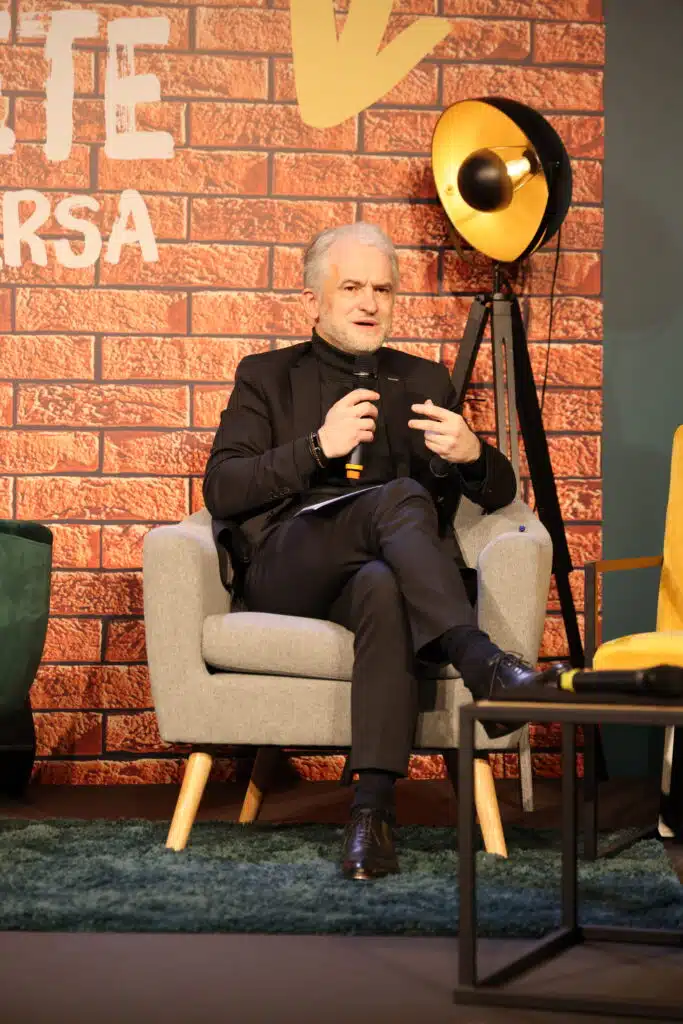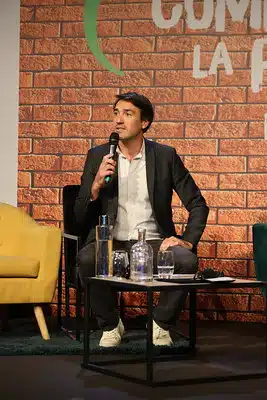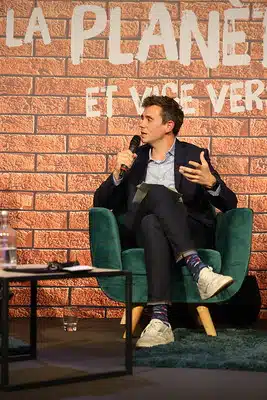One of the answers to the questions of our changing economic model is the development of local economies. How can small and medium-sized enterprises (SMEs) bring life to the local economic fabric while still meeting the needs of the local population?
Relationships at the heart of progress
« You can do things I cannot. I can do things you cannot. But together we can do great things. »
This quote from Mother Theresa summarizes the spirit the 20B conference’s speakers tried to embody.
Suvankar Mishra, from India, Abdoulaye Gning, from Senegal and Charlotte Sewell, from the UK gave three concrete examples of SMEs that tackle societal challenges and bring solutions to global issues in each of their countries. They are all based on cooperation between actors and emphasize the human dimension of doing business. Nourishing the relationships with the communities they help is one of their priorities.
Democratizing the future of farming
Suvankar Mishra’s company Blooom addresses the global farming problem. To keep the 9,1 billion people that the Earth will bear in 2050 well fed, the food production should be increased by 70%. However, agriculture is a complex system that depends on many variables and only those with good information, inputs, technologies and tools can thrive. « Unfortunately, only big corporations have access to those and the 120 million smallholder farmers of India chronically underproduce », regrets Mishra.
The solution that he proposes to that complex problem is a digital platform that aggregates data and transactions as well as enabling farmers to have direct interactions with markets and financial institutions.
But in many areas of India, the smart phone penetration is low and people are often illiterate. The idea is to combine this technology with educated people trained to be micro-entrepreneurs and serving as change agents on the field. As Mishra says: « to introduce change, you need to build trust. »
The resulting solution is a highly functioning human-technology hybrid model: it analyses the needs of each member of the food value chain and creates benefits for all. By bringing actors together through digitalization, Blooom allows them to improve and produce better.
Breaking taboos about female hygiene
Abdoulaye Gning, co-founder of ApiAfrique with his wife Marina Gning, explained how they came up with the idea of their social business by recalling his personal experience. During his yearly vacations in Senegal, he was appalled by two issues: the fact that 45% of young girls skip school when on their menstruations and the amount of waste that hygiene creates. In the first two years of his life, a toddler produces up to a ton of waste that will take 450 years to biodegrade.
ApiAfrique brings an answer to both of these concerns: washable nappies and washable pads that can be reused up to 400 times and are chemical-free.
This business doesn’t only provide a practical solution to the African hygiene crisis, it also aspires to empower women by raising awareness and breaking the strong taboos about female menstruations in Africa. With local women’s testimonies and local language translation, their digital awareness program is adapted to the social and cultural context of each African community.
Shaping the food industry in a human form
The third example is a family business in the UK since 1997: the frozen food company Cook, presented by Charlotte Sewell. Their slogan « made like you would at home » is not false advertising since all of the food is hand-cooked and home-made with local products.
Most importantly, the driving purpose of the company is to promote human relationships. Charlotte Sewell gave the example of an elderly man who had fallen in his house. His family was warned by the employees of the nearby Cook shop who were worried by not seeing him. This shows the level on which they connect with their customers.
Employees can give a “Care Card” to any customer coming on hard times. It gives them 30% off all products for a period of 12 months. For instance, people who have relatives in the hospital and don’t have the opportunity to spend quality time at home have been offered this discount.
The company also designed human shaped benefits for employees, such as having their birthday off or a hardship loan up to £ 1 000. Moreover, they do not hesitate in employing people facing barriers to employment such as homeless people, former inmates or mentally ill individuals.
In the end, these three businesses create a shared and durable prosperity at a local level, based on trust, fairness and progressiveness, making them forces for good in society.
Elsa Touzard



